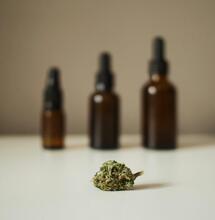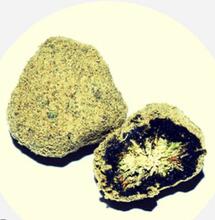Is Vaping Safe?

Some people prefer to vape cannabis. It has a much milder smell, is easier to use, is more affordable, and provides a consistent dosage.
Research suggests that vaping THC oil may damage your lungs and increase your risk of adverse side effects.
The risk increases significantly if your vape product contains a vitamin E acetate chemical. A 2019 outbreak of severe lung disease was blamed mainly on vaping and vitamin E acetate.
The disease was named EVALI (e-cigarette or vaping use-associated lung injury). Over 2,500 people were hospitalised or killed by EVALI. Data showed that 82% of those suffering from EVALI had vaped products containing THC, often along with other vape products. 33% had exclusively vaped THC-containing products
The risk is more significant from illegally manufactured or modified vape products. However, even with legal developments, vaping THC oil at just one time can significantly harm your lungs.
Risk of Side Effects
THC-containing vape products contain concentrated plant forms, meaning THC levels are much higher than what you would find in Cannabis Flower products. Vaping makes them especially likely to cause adverse side effects or long-term health problems.
- Impaired brain function: attention, memory, coordination, and time perception.
- Impaired brain development: Vaping during pregnancy, childhood, or youth may harm the brain's ability to build connections, affecting attention, memory, and learning.
- Cancer risk: Vaping or smoking cannabis may contribute to the development of lung cancer.
- Heart health: Cannabis raises the heart rate and blood pressure and increases your risk of stroke and heart disease.
- Mental health: Frequent, heavy use may cause anxiety, paranoia, temporary psychosis, schizophrenia, depression, suicidal thoughts or behaviours.
Several other non-cannabis-based ingredients can also harm your lungs when vaping. Ingredient lists don't always give you full disclosure. Look out for;
- Heavy metals: The minuscule coils that heat the vaporiser break down over time, meaning that you may be inhaling heavy metals.
- Carcinogenic (cancer-causing) compounds: Some chemical ingredients can release potentially dangerous, cancer-causing compounds when they're heated.
- Ultrafine particulates: While there are fewer than in tobacco pipes or cigarettes, vaping fluids hold tiny particulates that, when inhaled, can get deep into the lungs, irritating.
- Flavours: Flavouring used in vaping products may contain fluids such as diacetyl, which has been linked to severe lung issues when inhaled.
Vaping Marijuana vs Vaping Nicotine
Smoking tobacco or marijuana leaves is, without a doubt, dangerous to your health. When you smoke, you take in very hot particles of material that can irritate sensitive lung tissue. Burning leaves can also cause chemical reactions, inhaling potentially toxic compounds that may be linked to cancer.
Vaporisers don't burn plant material. Instead, they heat substances, creating an aerosol. The aerosol made by the vaporisers may feel much smoother in the lungs. But that doesn't mean they're safer.
Which Method Is Safer?
In the case of nicotine products, vaping may be safer than smoking as it involves fewer hazardous chemicals, resulting in less lung damage. Still, it's far from safe and may lead to nicotine addiction or fatal lung disease.
However, this is not the case with cannabis products. Smoking cannabis harms your lungs but vaping it is even worse. Vaping cannabis, therefore, may be more dangerous than vaping or even smoking nicotine products.









